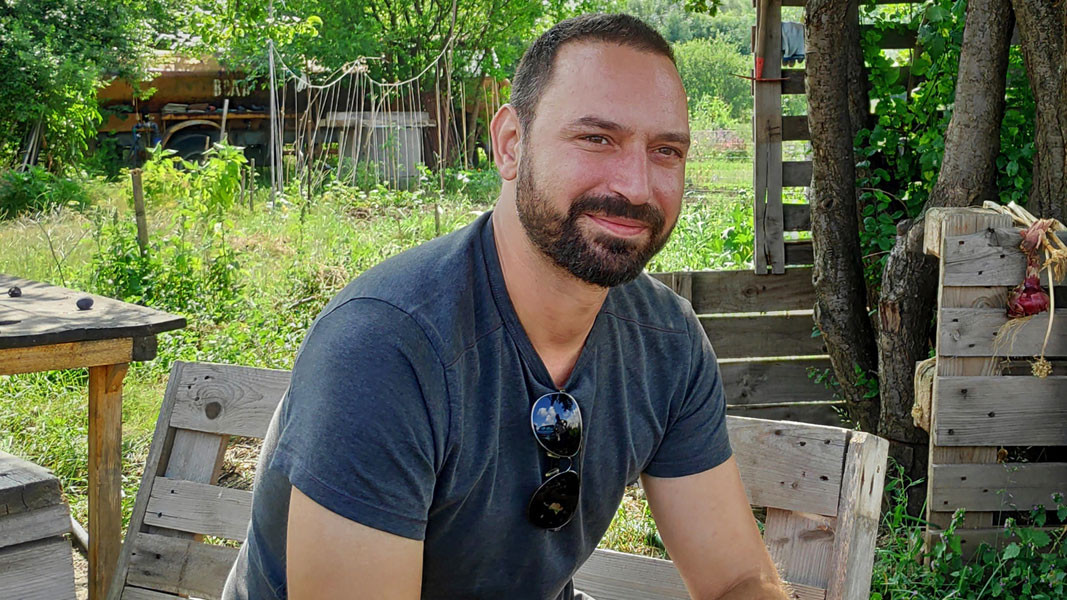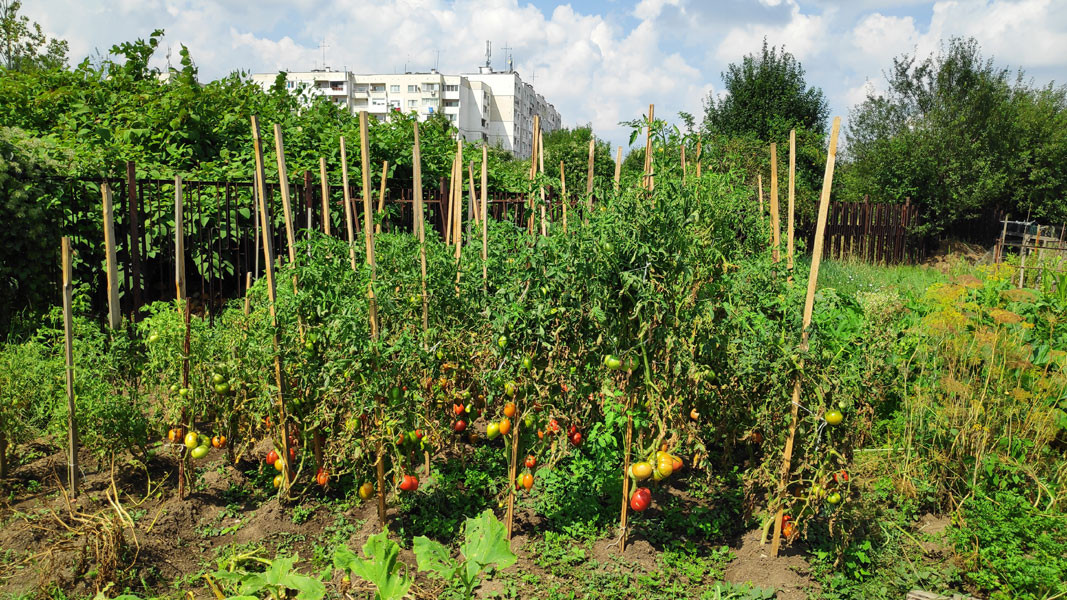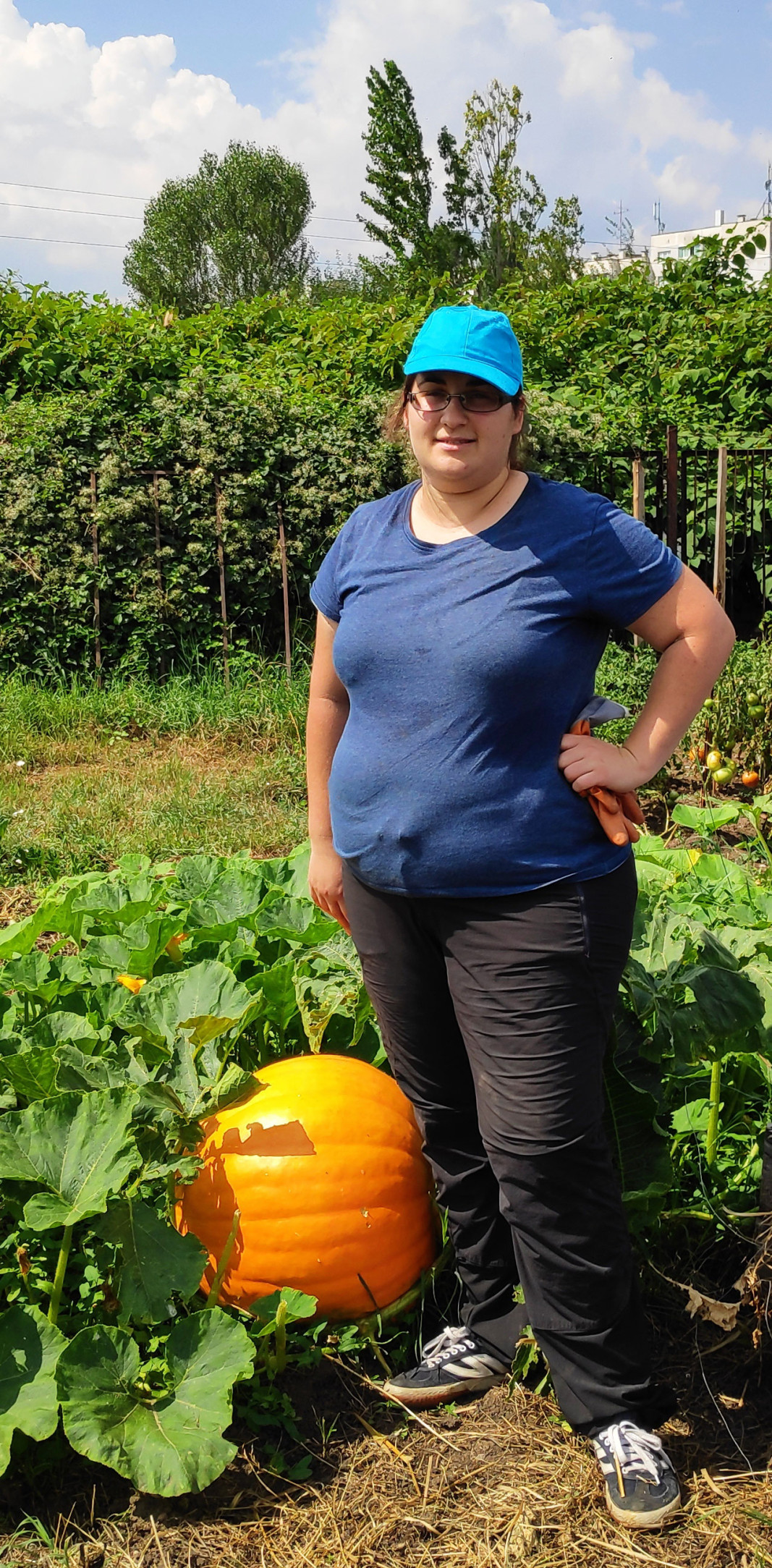Unrestricted freedom and people ready to experiment without being afraid of making mistakes – that is how, briefly, we can describe the sense of tranquility and harmony on the territory of the shared garden in the Sofia residential area Drouzhba.
The garden is close to one of the busiest road arteries and borders on warehouses and trading facilities in the city’s outskirts. Nonetheless it has developed into a small oasis where people are free to spend as much time as they like and get away from the hustle and bustle of the city. The name itself – shared “Gardens for Drouzhba” (Drouzhba being the name of a residential area, but also the word for friendship), transforms the very idea of this old housing development consisting of shabby pre-fab blocks of flats into a place for human bonding, for friendship and mutual assistance – things any modern Bulgarian craves.
“There is no commercial element in urban gardening – there is no profit except for the social capital, and in our modern society it is of utmost importance,” says Nikola Bonchev, a young man from Sofia, on whose initiative the garden was created.

“What is perhaps most important is that people come here and socialize on a plot of land which is free territory and which is set aside for their needs. Everyone is welcome – here you don’t have to consume, to spend money on anything, all you have to do is come along and get involved. Urban gardening is not about growing organic food, it has a social side to it which is difficult to develop in pure form in the city. It is a pleasure to welcome every newcomer to the garden. There are very few uncultivated plots of land left, but where there is a will there is a way. My own motive to organize this shared garden are the difficult and poor years I spent as a university student. When I returned to Bulgaria from Austria where I graduated I wanted to find some space to grow food for myself and for my family. And I found out there were no such gardens in Bulgaria. So I got in touch with a friend who suggested that I start working the land in the space inbetween the blocks of flats in Nadezhda residential area in Sofia. That was how it all started, with the help of 12 volunteers. Some of them are still with us and we are good friends. That was 7-8 years ago. In 2015 we were able to come to the plot we are now working in Drouzhba residential area. Soil specialists from the Bulgarian Academy of Sciences did us a big favour- they studied the soil composition. And it turned out that the soil was clean and very good for growing food. We are not out to compete with farmers who make a living out of farming. We till the land as a hobby, as a pleasant pastime.”

“To my immense joy, in Bulgaria we have unrestricted freedom which we don’t even know how to make use of,” says Nikola. He can see that his idea is being followed by other people in Sofia and that even though there are difficulties, the number of these gardens has been growing. Urban gardening helps people have faith in themselves – that they are capable of organizing their lives and making the important decisions themselves. At the “Gardens for Drouzhba” the number of gardeners will soon reach 50 and they all have a personal motive in coming here. Daniela Yordanova is 35 and she says this is a good place to experiment how to grow plants.
Urban gardening helps people have faith in themselves – that they are capable of organizing their lives and making the important decisions themselves. At the “Gardens for Drouzhba” the number of gardeners will soon reach 50 and they all have a personal motive in coming here. Daniela Yordanova is 35 and she says this is a good place to experiment how to grow plants.
“Here I found out about permaculture, about biodynamic agriculture. In time I will be living in a house with a garden and this is a good place to practice before I have a garden of my own. We have a parent cooperative and I cook for the children in it – courgettes, tomatoes and all kinds of vegetables I grow in the garden. I also bring my child with me when I am working in the garden. It is important that he sees where food comes from, it is a good thing to bond with the soil. It is such a pleasure to pick something from the garden and eat it – the feeling is incredible.”
Photos: private library
Measurement equipment installed at the Bulgarian Antarctic base "St. Kliment Ohridski" has been collecting valuable data on solar activity and its relation to the Earth's magnetic field for two months. The research is part of Bulgaria's first polar..
558 Bulgarians aged 18, selected from 1,785 applicants, will be able to embark on their dream journey by train across Europe, learn from other cultures and build new friendships. They have been selected to receive a free travel pass through the..
In the era of increased digitalization and the penetration of artificial intelligence into all spheres of our lives, the professions of people with high qualifications and higher pay are most at risk of extinction. The least affected are jobs that..
Exactly 3 years ago, on February 24, Russia’s invasion of Ukraine began – an event that woke up Europe 77 years after the end of World War II and called..

+359 2 9336 661
